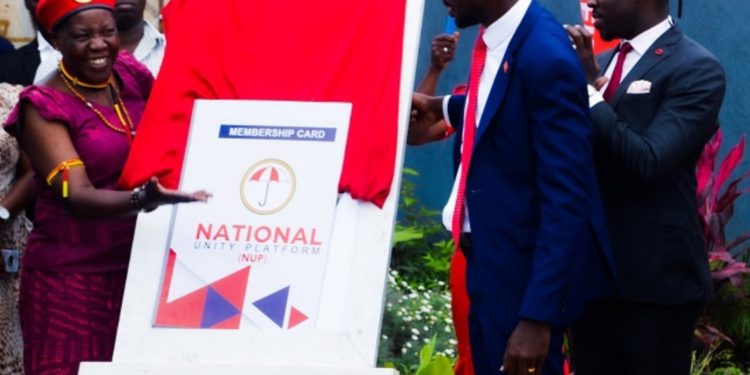Uganda recently held General Elections in 2021 to choose the President, Members of Parliament, and Local Government leaders at various levels. The result, as you probably know, saw NRM secure the majority of votes, reelecting President Yoweri Museveni, and giving NRM a significant presence in the 11th Parliament with 336 out of 529 seats.
During the 2021 General Elections, the National Unity Platform (NUP) emerged as a major political force, offsetting the Forum for Democratic Change (FDC).
Despite not winning the majority of votes, NUP has remained in the spotlight for various reasons, both positive and negative. This attention has led to seen several shifts that may seem disconnected. One of the party’s key slogans has been “we are removing a dictator,” yet, behind this, the party’s members have been criticized for offensive behaviour and vulgar language. At times, the party distances itself from such actions, while other times, it downplays and claims that spotlighting these is diversion.
With the 2026 elections approaching, let’s take a look at whether NUP is still on track to achieve its goal(s).
What Are NUP’s Objectives?
According to information obtained by Eye Media Uganda, NUP’s ideology centres around progressivism and constitutionalism. Progressivism believes in improving societies through political reform, and constitutionalism emphasizes that government authority derives from fundamental laws.
NUP’s stated mission is to unite the people of Uganda to build a free, united, prosperous, and democratic nation. This mission is guided by six core values: discipline, reliability, inclusiveness, integrity, fidelity, and service.
In simpler terms, these principles are meant to help NUP achieve its vision of a free, united, prosperous, and democratic Uganda that upholds the rule of law and provides equal opportunities for all.
How Well Is NUP Doing by Its Own Standards?
In many organizations, vision, mission, objectives, and values guide progress and success. However, when one element is lacking, it can affect the overall performance. In this case, if the core values are below par, achieving the mission, and subsequently, the vision will be affected.
NUP’s members and leaders are supposed to represent the party’s ideals, but there have been instances where they fell short of the party values, particularly in the area of discipline. Some members have publicly insulted those with differing views, undermining the party’s core value of discipline.
Reliability is subjective, but NUP’s ability to navigate challenges and provide effective leadership when needed may be questionable to some. In Busoga, for example, where Mayor Kasolo has failed to deliver, Mayor Bamu Lulenzi has done tremendous work. It comes down to a will and being strategic.
Inclusiveness is a strong suit for NUP, but the concern lies in whether the people joining under this banner can genuinely contribute to the party’s mission and long-term success. Some who joined during the 2021 General Elections later turned against the party. It all seems like NUP is an easy springboard to elective office.
NUP’s integrity was tested during the vetting of candidates for the party ticket, raising questions about fairness and influence within the party. Many NUP members claim to have had an unfair chance with the NUP Election Management Committee headed by Mercy Walukamba. Some members claimed influence peddling by some members close to Robert Kyagulanyi Ssentamu, and people like Kyagulanyi’s relative, Chairman Nyanzi, were cited by many This challenges the party’s claim of being different from the NRM in handling internal issues.
Fidelity, or loyalty, is evident among members, but there have been instances of members ridiculing party leaders like Matthias Mpuuga, suggesting loyalty may be more towards an individual like Robert Kyagulanyi rather than to NUP itself. We are now familiar with phrases like _”Pulinsipo tasobya”_ loosely translated to mean that the NUP Principal, Kyagulanyi, doesn’t make mistakes. This could spell patronage in NUP, just like all the other political parties.
The value of service is best understood through the actions of elected leaders and party leadership at the Secretariat and regional offices.
In Summary
When evaluating NUP based on its core values and mission, there are both positive and negative aspects. To provide better strategic guidance, NUP should address its issues, mainly with discipline, which appears to be a significant challenge at the moment. Ignoring weaknesses and silencing dissenting voices may be counterproductive and harm the party’s progress.
This analysis is done by The Eye Media Uganda editorial team.















